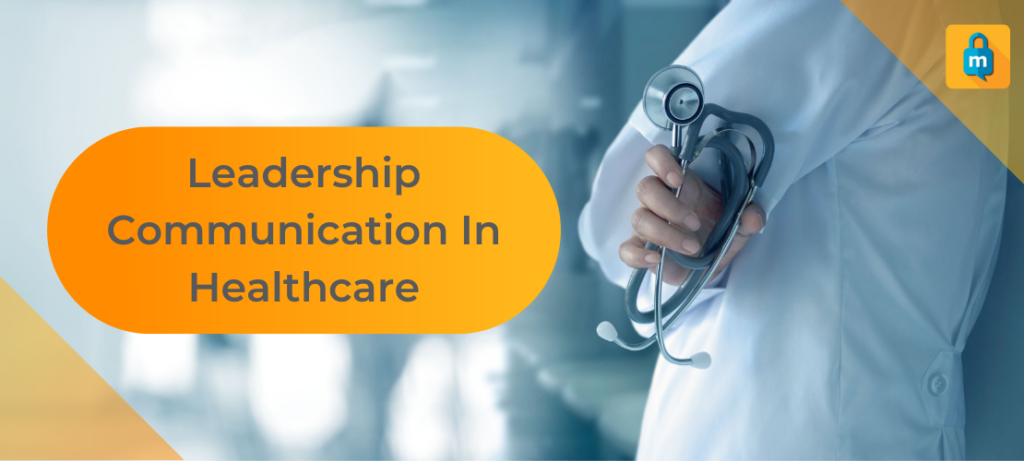Leadership style and communication have been facing uncertain changes throughout recent years. The pandemic is transitioning leaders to focus on adaptive and flexible leadership. Healthcare leaders are talented individuals with multifaceted skill sets, but with COVID disrupting communication, these leaders must consider secure messaging for managing crisis communication and information to reduce team stress. Today’s era exclusively focuses on data and information and medical education and technology. For healthcare providers working interdependently, information overload is one factor in increasing anxiety and stress. Secure messaging is crucial for healthcare professionals to remain HIPAA-compliant and enables messages to be tailored to specific information levels: FYI, routine, and critical. These types of tailored messages received allow healthcare providers to save time and reduce information overload and anxiety. Leaders can prioritize tasks depending on the levels of urgency from the texts. When organizations choose secure messaging, healthcare providers can ease stress and be more prepared to handle duties and responsibilities. Having secure messaging can protect an organization’s most sensitive data.
What Leaders Need To Expect
Burnout is every organization and leader’s fear, as found in a study by Rohit B. Sangal MD, MBA, et al. called, “Leadership Communication, stress, and burnout among frontline emergency department staff amid COVID-19 Pandemic: A Mixed Methods Approach.” When leaders effectively manage information during a crisis, there’s less anxiety and stress, “Therefore, a key challenge presented by COVID-19 was providing HCWs with essential information while managing constantly changing guidelines, policies, and resources,” (Sangal et al., p. 2). Healthcare leaders shoulder a lot of challenges when secure communication is a barrier. Using pagers limit the expressions within the message and could potentially be hacked. Leaders can resolve potential data breaches and streamline clinical communication using Amtelco Secure Messages. The author suggests communication is crucial and responsible for alleviating or increasing the perception of reducing stress, “This suggests that ED HCWs who perceived the communication to be more effective felt more supported, which in turn reduced reported levels of stress at work,” (Sangal et al., p. 3). Leaders can also lessen healthcare providers’ anxiety further by implementing consistent communication. Healthcare providers can respond quickly to critical notifications and prioritize tasks based on urgency, and there’ll be less stress and information overload. When healthcare providers and leaders practice closed-loop communication, there’s less room for medical errors. Leaders can use the app to open forums and delegate tasks within messages to facilitate open communication.
The Solution
Communication alone enhances healthcare providers’ perception of leadership support, and Amtelco Secure Messages can provide a secure platform for leaders to connect with staff members. Leaders must consider how leadership communication is impacted when organizations have virtual and in-person care. An article by Anja Terkamo-Moisio et al., “Towards Remote Leadership In Health Care: Lessons Learned From An Integrative Review,” gave insights into how critical remote leadership is to staff. The expectations for remote leaders remain the same such as strong management skills, setting goals, creating visions, and the ability to make decisions. Terkamo-Moisio et al. reported the importance of leadership communication; “Communication and information sharing are associated with several positive aspects, such as an enhanced leader–member relationship, trust, perceived leader performance and effectiveness, as well as team creativity,” (Terkamo-Moisio et al., p. 601). Continuing consistent communication when working out of the office can improve performance. Making sure communication is HIPAA-compliant is crucial for remote leaders because data breaches are dangerous and expensive to recover.




